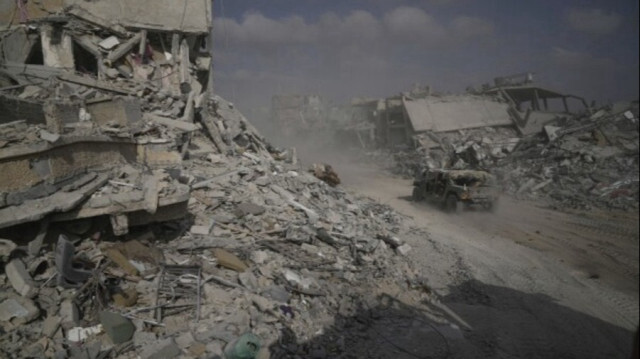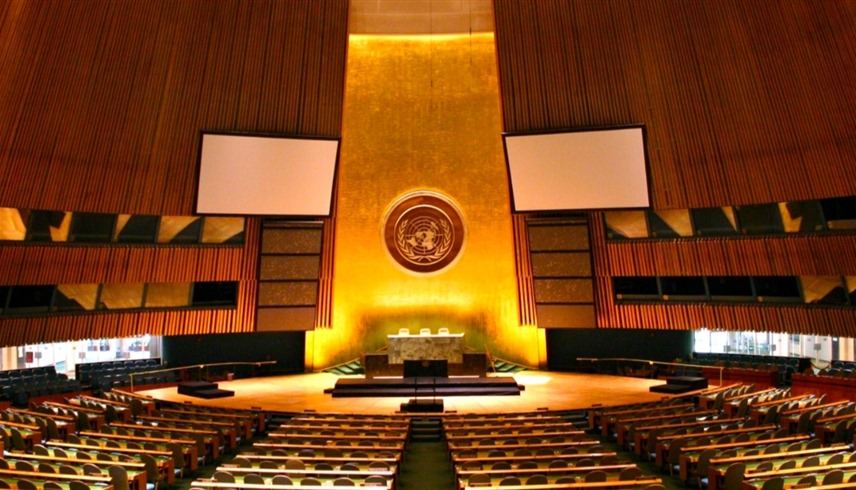UN Resolution Demands Israel End Occupation in 12 Months
A UN resolution advocating for the end of Israel's occupation of Palestinian territories has sparked intense international discourse and responses.
Published September 19, 2024 - 00:09am

Image recovered from yenisafak.com
The Palestinian Permanent Mission to the UN submitted a draft resolution to the General Assembly, demanding Israel end its presence in the occupied Palestinian territories within 12 months. Riyad Mansour, representing Palestine, emphasized the determination of Palestinians to live with dignity, urging international cooperation to ensure justice and uphold the rule of law.
This move follows the UN General Assembly's decision to grant the mission additional rights and privileges, enhancing its participation at the UN. An emergency session of the 79th UN General Assembly was convened to address the legal consequences of Israel's activities in the occupied Palestinian territories. Representatives stressed the need for immediate action, highlighting that delayed justice is essentially denied justice.
The draft resolution, co-sponsored by over 40 countries, calls for the end of Israel's illegal occupation. Mansour stressed that it is the collective duty of the international community to ensure compliance with international law. He lamented the suffering of Palestinian children, urging the international community to hold Israel accountable and take decisive action.
On the same front, the UN General Assembly's non-binding resolution passed with 124 votes for, 2 against, and 43 abstentions. Israel's UN Ambassador, Danny Danon, criticized the resolution, describing it as a 'shameful decision that supports the Palestinian Authority's diplomatic terrorism.' He pointed out that the resolution came while Israel's conflict with Hamas in Gaza approached its first anniversary, igniting further violence in the West Bank.
The resolution, demanding the withdrawal of Israeli forces and settlers from Palestinian territories without delay, aligns with the International Court of Justice's July ruling, which declared Israel's presence in these territories illegal. Despite the non-binding nature, significant support for the resolution signifies a global call for ending the occupation.
The adoption of this resolution is viewed by Israel as encouraging terrorism, further isolating the state just before the annual session of the UN General Assembly. The resolution follows a historic opinion from the ICJ, marking a pivotal stance on Israel's occupation and setting a 12-month deadline for its cessation.
The Arab countries rallied for a special session ahead of the General Assembly, using the ICJ's ruling to pressure Israel. Citing the historic nature of the ICJ's opinion, Mansour urged the international community to push for accountability and to create conditions for peace, based on the 1967 borders with East Jerusalem as the capital of an independent Palestinian state.
In the face of staunch Israeli opposition, the resolution's clauses include demands for the cessation of illegal policies and settlement activities, the withdrawal of settlers, and the restoration of Palestinian property. Israel's sharp rebuttal continues, with its leadership accusing the UN of perpetuating a biased stance against the state.
As international focus converges on the situation, the broader impact of the resolution and the accompanying debates continue to stir geopolitical dynamics and global legislative stances toward the Israeli-Palestinian conflict. Mansour's fervent appeal for global justice remains a significant marker in ongoing international diplomatic efforts.






